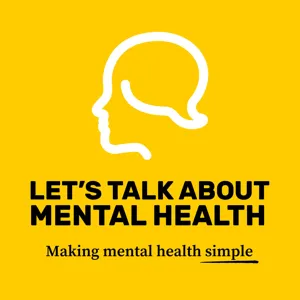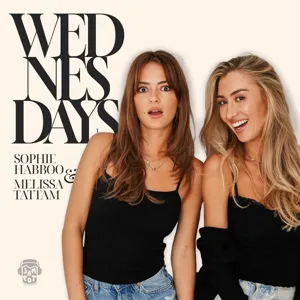Podcast Summary
The Power of Strong Relationships: A 75-year Harvard study found that strong relationships are the key to a meaningful and fulfilling life, surpassing the impact of wealth and fame on happiness and health.
That according to a long-term study conducted by Harvard University, good relationships keep us happier and healthier throughout our lives. The study, which spanned over 75 years, involved interviewing participants, collecting medical records, drawing their blood, scanning their brains, and talking to their family members. Contrary to popular belief, the study found that wealth and fame do not contribute significantly to happiness and health. Instead, the clearest message from the study was that strong relationships are the key to a meaningful and fulfilling life. This idea is not only intriguing but also reassuring, as it suggests that investing time and energy into building and maintaining relationships is a worthwhile endeavor.
The Importance of Relationships in a Fulfilling Life: The Harvard Study of Adult Development found that focusing on relationships, not material achievements, leads to a more fulfilling life. Rebuilding and strengthening social connections post-pandemic is essential.
Focusing on material achievements and accolades may not bring lasting happiness. Instead, building and nurturing relationships with others is a key factor in leading a fulfilling life. This was a finding from the long-term Harvard Study of Adult Development, which followed participants from their teenage years into old age. Harvard's psychiatrist and study director, Bob Waldinger, emphasized the importance of this realization in his own life, sharing how his Zen practice helped him prioritize what truly matters. As we emerge from the pandemic, it's crucial to rebuild and strengthen our social connections, actively reaching out to others and engaging in activities that foster meaningful relationships.
The importance of social connections and self-care for well-being: Making meaningful connections and prioritizing self-care can lead to better health and longevity. Studies show having secure relationships and avoiding harmful habits like smoking, excessive alcohol, and drug use, exercising, and eating well contribute to a fulfilling life.
Making meaningful connections with others and taking care of oneself are crucial factors for improving well-being. The speaker shares his personal struggle with spending too much time on email and the importance of making plans to spend time with people and reinventing ways of connecting. The study found that having at least one secure connection with someone can significantly impact health and longevity. Social connections and self-care were already established as important factors, but the study also highlighted the significance of not smoking, avoiding excessive alcohol and drug use, exercising regularly, and eating well. It's essential to remember that not everyone has the same opportunities for self-care, and it's crucial to consider the privileges and challenges that come with it. In summary, prioritizing social connections, self-care, and secure relationships can lead to a more fulfilling and healthier life.
The impact of secure attachments on our well-being: Recognize individual responses to social media, prioritize positive connections, and focus on relationships for overall well-being
Secure attachments formed from early childhood through adulthood contribute significantly to our physical and emotional well-being. Building in-person connections is important, but the impact of digital connections through social media is still unclear. It's essential to recognize that the effects of social media use can vary greatly from person to person. Some people may find themselves feeling more isolated and negatively comparing themselves to others, while others may form meaningful connections and communities. It's crucial to be aware of our individual responses to different types of media and platforms, and use a personal litmus test to determine which ones positively contribute to our energy and sense of connection. Ultimately, the key is to prioritize relationships, both in-person and digital, that make us feel more connected and engaged.
Focus on activities we enjoy and are good at for connection: Find joy in activities, connect with others through shared interests, and be open to new experiences
It's essential to focus on finding activities we enjoy and are good at to connect with people rather than forcing ourselves into things we dislike or aren't skilled at. The speaker shared her experience of struggling to make friends through sports due to her lack of interest and ability. However, she found a sense of belonging and connection through comedy and being good at it. Furthermore, avoiding certainties about our future and limiting beliefs can open up new opportunities for growth and happiness. It's essential to question our assumptions about ourselves and the world and be open to unexpected experiences.
Harvard Study: Close relationships, good health, and a sense of purpose contribute to a meaningful and happy life: The Harvard Study, which began in 1938, found that close relationships, good health, and a sense of purpose are essential for a fulfilling life. Regular exercise, like running in Brooks Ghost Sixteens, can also promote overall well-being and happiness.
The long-term study conducted by Robert Waldinger at Harvard, which started in 1938, has provided valuable insights into what contributes to a meaningful and happy life. The study, which initially focused on white men from privileged and underprivileged backgrounds, has shown that close relationships, good health, and a sense of purpose are key components of a fulfilling life. However, it's important to note that the study's findings are limited to this specific population, and further research is needed to understand how these factors apply to other demographics. Meanwhile, taking care of your physical health, such as through running with shoes like the Brooks Ghost Sixteens, can contribute to overall well-being and happiness.
Studying diverse populations over long periods of time is crucial for understanding human life: Researching socioeconomic diversity provides valuable insights into various aspects of life, and addressing societal issues like gender equity could lead to similar benefits for all. The importance of studying lives over time for accurate insights into human experiences is emphasized.
Studying diverse populations over long periods of time is crucial for understanding human life. Research, such as the one discussed, which focuses on socioeconomic diversity, can provide valuable insights into various aspects of life. However, it's important to note that what constitutes diversity may change over time. In the study mentioned, researchers found that marriage conveys different benefits for men and women, with men experiencing a greater longevity advantage. This could be due to various factors, including unequal distribution of labor in relationships and societal norms. Addressing these issues through gender equity could potentially lead to similar happiness benefits for men and women. One key message from the researchers is the importance of studying lives over time to gain accurate insights into human experiences. The most challenging change to implement for societal improvement is socioeconomic equity and opportunity, which has far-reaching impacts on various aspects of life, including education and childcare. The Dalai Lama's teachings have been a source of inspiration for personal growth and better understanding of human emotions and relationships.
Practicing kindness in difficult situations: Focusing on kindness can lead to stronger connections, improved relationships, and a more fulfilling life
Practicing kindness, even in difficult situations, can help us become better humans. When we pause before reacting negatively, and consider the kind or helpful response, we can strengthen our connections with others and improve our relationships. As the guest, Dr. Robert Waldinger, emphasized, "my religion is kindness." By focusing on kindness, we can make a positive impact not only on ourselves but also on those around us. This simple yet powerful practice can lead to a more meaningful and fulfilling life. So, the next time you're tempted to retaliate, try pushing the pause button and consider the kind response instead.






